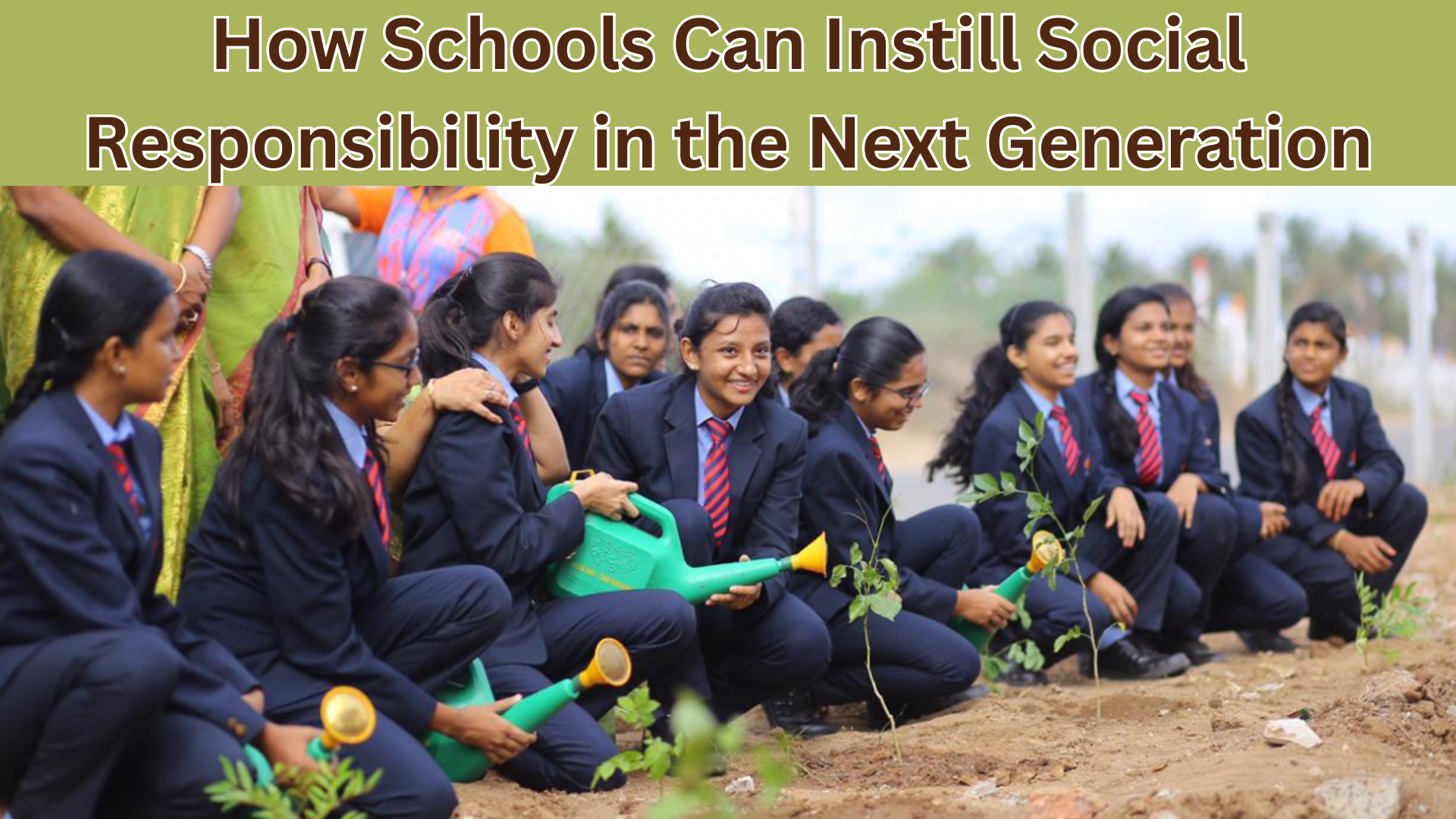In this article, we are going to discuss how schools can instill social responsibility in the Next Generation, and its benefits.
How Schools Can Instill Social Responsibility in the Next Generation
It is essential to instill social responsibility in pupils in order to produce kind, involved citizens who make valuable contributions to society. Through the integration of civic responsibility, empathy, and environmental stewardship, schools play a crucial part in this process.
Through curricular integration, community service, and the creation of a welcoming and encouraging school climate where students feel appreciated and equipped to change the world, schools may help students develop social responsibility. Numerous programs, such as integrating civics and ethics instruction, encouraging volunteer opportunities, and aiding student-led social action projects, might help achieve this.
Why Schools Should Instill Social Responsibility?
The development of pupils’ awareness is the main objective of social responsibility education. Because they see how important honesty, justice, and compassion are, they are able to grow into powerful moral beings. These qualities support professional progress as well as personal development. By teaching these principles, educational institutions contribute to the development of morally upright adults.

The lives of students can be profoundly and permanently impacted by social responsibility education. Kids carry into adulthood the values kids acquire in school, which help them become morally upright workers, conscientious customers, and engaged citizens. Socially conscious students may fight for justice and make major contributions to environmental and social problems.
More Details: Get Here
Ways in Which Schools Can Instill Social Responsibility
Integrate Social Responsibility Into The Curriculum
By integrating social responsibility into the curriculum, students are better able to comprehend how their activities affect the environment and community. Topics like ethics, environmental science, and social studies may incorporate conversations on contemporary societal challenges, fostering empathy and critical thinking.
Promote volunteerism and community service
Incorporating community-building programs and activities into the curriculum allows schools to provide students the opportunity to apply. Therefore, they will be able to implement what they have learned in the classroom in real-world situations. Working together with neighborhood nonprofits, environmental groups, and social entrepreneurs gives students invaluable practical volunteer experience. In addition to broadening their awareness of social responsibility, these programs encourage proactive participation in worthwhile community work.
Initiatives for the Environment
Via the implementation of recycling initiatives, energy-saving projects, and sustainability workshops, schools may encourage environmental responsibility. By getting kids involved in these programs, we can raise awareness of environmental concerns and promote sustainable habits. These initiatives not only help the environment but also provide students the ability to make decisions that are ecologically friendly.
Foster student-led initiatives
In social responsibility-promoting activities, students might be encouraged to assume leadership positions. Their motivation and involvement in social responsibility initiatives may be improved by this involvement. Community welfare, animal rights, and mental health awareness are a few examples of such programs.
The Study of Ethics
Students who get instruction in ethics and moral reasoning are better equipped to handle challenging social circumstances and make moral judgments. Students’ social awareness and moral compass may be strengthened by including conversations on issues like justice, fairness, and respect into class activities.
Schools may enable students to become responsible, involved, and active citizens who are dedicated to changing the world by putting these methods into practice.
Concluding Words
It is imperative that social responsibility be taught in schools. Students should be able to thrive academically and cultivate socially conscious behavior in schools. Every school cultivates an atmosphere that encourages students to assume social responsibility.
Through community service, environmental initiatives, and ethical education, they empower students to become responsible global citizens and contribute positively to society. Schools may create well-rounded individuals who are aware of their societal roles. They can bemotivated to contribute positively by integrating social responsibility into many aspects of education.
Through curriculum enhancements, community involvement, environmental projects, ethical education, leadership training, and collaborations with non-governmental organizations. Hence, the educational institutions can lay the foundation for a more responsible and compassionate generation in the future.
Thanks a lot for reading this post till the end.
